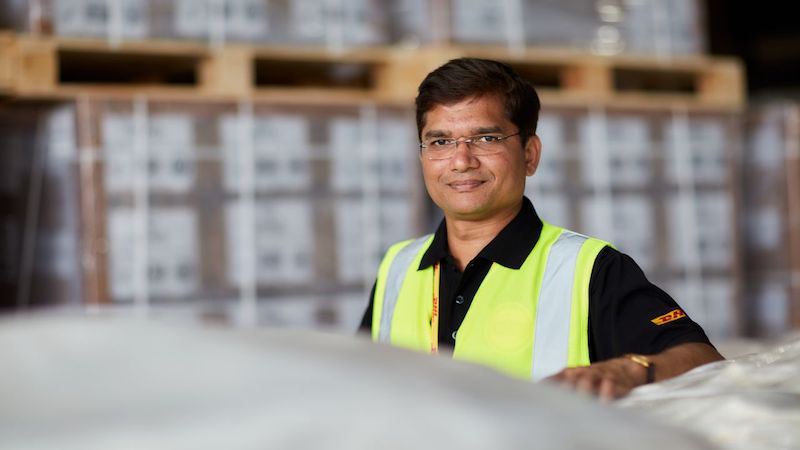Grow your business with the Discover newsletter
Logistics advice & insights straight to your inbox
Subscribe now
As a small-island nation, Singapore lacks natural resources and thus has to depend heavily on trade and imports from other countries. By importing goods and food items, business owners in Singapore can save a significant amount of money as opposed to investing in modern, expensive machinery for production. One such example of Singaporean companies importing from other countries would be the bilateral trade relations between India and Singapore. Businesses in India ship a large number of agricultural products, article apparels, precious stones, and more to Singapore, with imports amounting to US$7.36 billion in the year 2021, as stated by the United Nations COMTRADE database.
So, if you are thinking of leveraging the amicable trade relations by importing goods from India to Singapore, then this article is for you.
Below, we detail the process of shipping to Singapore from India and the facets of international trading between the two countries.
Like all other countries in the world, Singapore imposes taxes through the Goods and Services Tax (GST) and/or duties on imports being shipped into the country. This means that all imports including approved foods, consumer products, and electronic goods are subject to only GST as a form of import tax. However, not all goods will incur tax or duty payments. As such, it is important for you to determine the category of goods the product belongs to before you import them from India .
In Singapore, there are two main forms of import duties and taxes that you will have to take note of if you are shipping from India.
Goods that possess a value of more than S$400 are subject to GST. This amount is derived from the item’s Cost, Insurance, and Freight (CIF) value. The current GST rate in Singapore is 8%, and will increase to 9% in 2024.
If you are working with an Indian exporter for your goods and products, you will also need to inform them of the changes in GST charges under the Overseas Vendor Registration (OVR) regime. The OVR was implemented to safeguard local businesses against overseas vendors that did not have GST imposed on their goods and services. While it used to be applicable to only B2C supplies of digital services, with effect from 1 January 2023, this regime will also be extended to include low-value goods provided by digital and non-digital remote services to customers in Singapore. To put it simply, the business that you are working with in India will have to factor in the price of GST on their low-value items (S$400 and below) at the point of your purchase.
Besides GST, certain imports from India may also incur customs or excise duties. Customs duties are levied on dutiable goods from specific categories in addition to the GST imposed. These categories of goods include:
Intoxicating liquors
Tobacco products
Motor vehicles
Petroleum products
On the other hand, certain imported goods outside of these categories are also subject to additional excise duties. The amount is calculated from the assessed value of these goods or specific rates based on the total shipment value or specified amount per weight unit.
The import of goods to Singapore from India is heavily subjected to the customs regulations pertaining to the nature of your products. Before you send a parcel or prepare an import from India, it is important to understand the difference between prohibited and restricted goods. If you are planning on exporting restricted goods from India to Singapore, you will need to apply for an export licence for restricted goods. This process includes having to detail the profiles of both the importer and exporter, a copy of the commercial order, proof of payment, a copy of your Permanent Account Number (PAN), identity and address proof, and bank certificates. The process would take anywhere between 30 to 45 days, and exports will only be allowed past Indian customs upon receiving your export licence.
Restricted goods can include, but are not limited to, firearms, animals, plants, gold, soil, and products derived from human beings for medical studies or purposes. India also has a list of prohibited items that are strictly not allowed for export. These include:
Narcotics
Pornographic material
Counterfeit currency or goods


Apart from prohibited items mentioned in the above categories that India is strictly not allowed to export, there are local import laws that you have to follow to pass the customs clearance in Singapore. For instance, the local law prohibits the following items from being imported into the country:
Chewing gum
Cigarette lighters in the form of pistols or revolvers
Firecrackers
Endangered wildlife and products derived from them, such as rhinoceros horn
Telecommunication equipment such as scanning receivers, military communication equipment, telephone voice changing equipment, radio-communication jamming devices, radio-communication equipment operating in frequency bands 880-915 MHz, 925-960 MHz and 2110-2170 MHz except equipment approved by the Info-communications Media Development Authority of Singapore
Obscene articles, publications, and video tapes or discs
Seditious and treasonable materials
Chewing tobacco
Imitation tobacco products
Shisha
Smokeless cigars, cigarillos, or cigarettes
Dissolvable tobacco or nicotine
Nicotine or tobacco products that may be used topically for application, by implant or injected into the body
Any solution or substance, of which tobacco or nicotine is a constituent, that can be used with an electronic nicotine delivery system or vaporisers
Nasal and oral snuff
Gutkha, khaini, and zarda
Controlled drugs under the 4th Schedule Of Misuse Of Drugs Regulation

For all imports to Singapore, GST, as well as relevant customs and excise duties, will need to be paid depending on the nature of your shipments. Dutiable goods in Singapore mostly belong to the restricted list of items for import to Singapore.
To ensure a smooth customs process in Singapore, it is important to understand the Singapore Customs and import guidelines. Relevant documentation such as your customs and commercial invoices must be filled in accurately for the authorities to check. Other documents for Singapore clearance like your air waybill, bill of lading, and packing lists, must also be filled in and submitted before the customs process for your shipment begins. You would also be required to obtain a customs import licence.
The regulations mentioned above are applicable only if you are shipping from India to Singapore. However, if you are looking to ship goods from India to anywhere else in the world, you will have to keep in mind the destination country’s customs regulations and list of prohibited goods that can be imported into the country.
As a business in Singapore, it is important to be well-informed of the local customs clearance process, whether you are shipping from India, the United States (US), Canada, Malaysia, Sri Lanka, or anywhere in the world to Singapore. By understanding the relevant duties, taxes, and tariffs that apply to your products as well as the documents you need can help save time and money in the long run.
Instead of choosing to use the cheapest courier from India to Singapore, it is best to opt for a globally known and experienced logistics partner that would be able to assist you with your customs regulations and documents to limit any errors or delays in your shipments. DHL Express is a leading logistics and shipping partner that is experienced with import and export services in both India and Singapore. When you choose to partner with us, your business will be able to enjoy a hassle-free process of importing goods from India to Singapore.
Open a business account with us now and combine our experience and proven track record of shipping goods from India to Singapore with your entrepreneurial spirit.